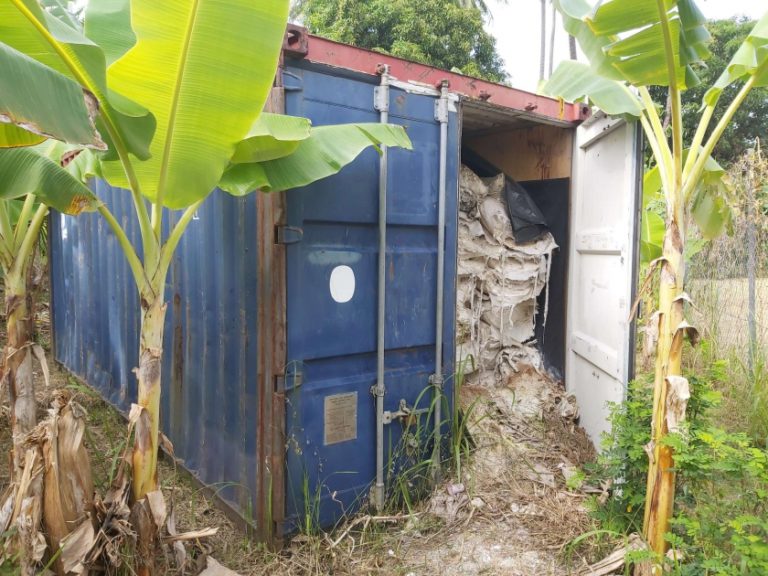News - Dec 14, 2021 Environmentally Sound Management of Hazardous Waste Project Moves Ahead

To assist the Government of PNG to have an effective solution for the management of hazardous waste, a sustainable project has formally been approved through the signing of two Memorandum of Understanding (MoU). An MoU signed between the Papua New Guinea National Department of Health (NDoH), and the Secretariat of the Pacific Regional Environment Programme (SPREP) on 2 November 2021 formally allows to progress implementation of project actions to enhance PNG’s healthcare waste management priority needs. Another MoU was signed between the PNG Conservation and Environment Protection Agency (CEPA) and SPREP on 21 October 2021.
This formally enables to progress implementation of innovative and sustainable actions for PNG’s waste management priority needs, especially for asbestos and e-waste, as the agreement provides a framework of cooperation, agreed project actions and responsibilities between SPREP and PNG, to work in partnership and implement project actions.
The signing of the MoU’s by Mr Gunther Joku, Managing Director of CEPA, Dr Osborne Liko, Secretary of the National Department of Health, and the SPREP Director General, Mr Kosi Latu defines the project partnership and allows the commencement of planned project actions in PNG.
PNG will utilise the support of the European Union-funded PacWastePlus programme to provide a holistic approach to hazardous waste management (asbestos, e-waste and healthcare waste) through the development of national strategies and regulations, and build capacity and community awareness, to help PNG achieve environmental, economic, social, and health benefits.
For many communities in PNG, water resources can be contaminated by pollutants through poorly managed waste handling and disposal. Post-World War II consumer habits have also greatly increased the amount of waste generated in many Pacific countries including PNG.
Hazardous waste management is a continuing challenge in PNG where exposure to toxic substances and chemicals have adverse impacts on public health and the environment. This project will provide a holistic approach to hazardous waste management through the development of national strategies and regulations, and build capacity and community awareness, to help PNG achieve environmental, economic, social, and health benefits.
Project actions will enhance long-term management of the three waste streams in PNG, namely, asbestos, E-waste, and healthcare waste by contributing towards a reduction in the land, water, and air pollution caused by inappropriate management of hazardous wastes and materials, as residents and businesses are made aware of ways to appropriately store and manage waste in accordance with the newly crafted regulations, policies, and procedures.
Reduction of hazardous waste-related illness by the creation, revision and execution of various hazardous waste management strategies and capacity building efforts and reducing exposure to ACM and potential health complications by the creation and adoption of a ban on the import of ACM into PNG.

